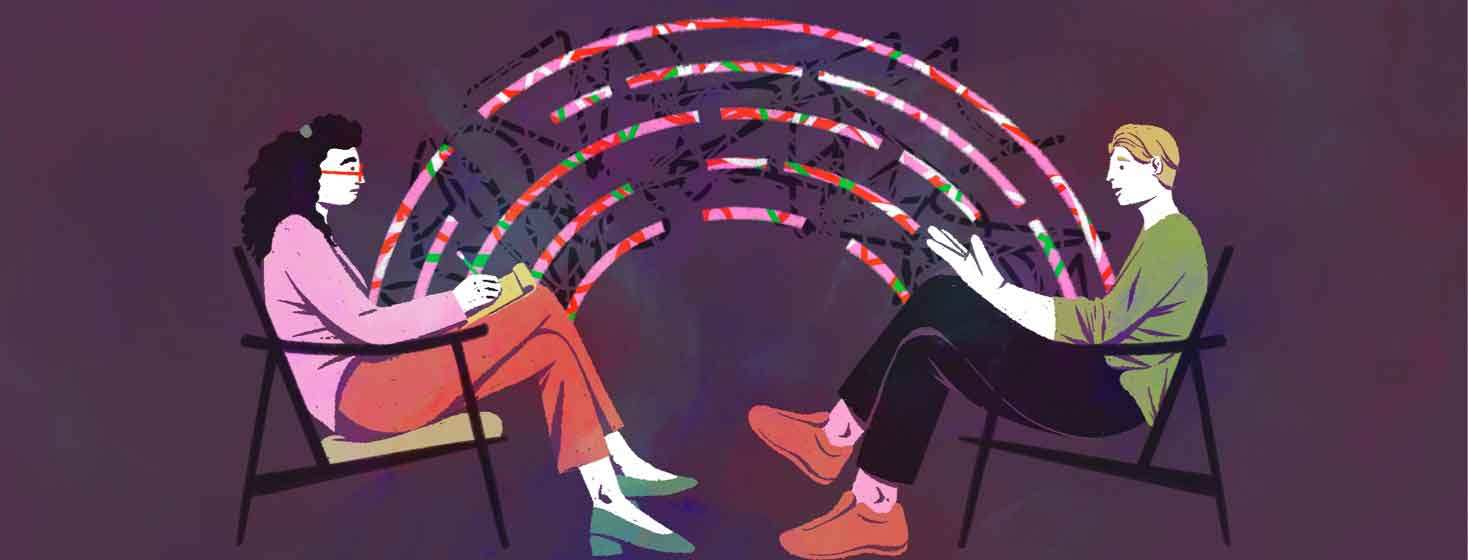Finding a Therapist
I’m a fan of therapy, but to be honest, I personally haven’t always found it to be helpful in the past. Perhaps I just hadn’t found the right therapist for my needs. I do generally consider myself to be a highly self-aware person, and I’m not a stranger to self-exploration work. However, I decided at different points throughout my journey with various chronic illnesses that it might be beneficial to speak with a professional.
Seeking therapy for my rare diseases
I hadn’t sought out therapy sessions for some time, so I went in search of a mental health professional who might be a good fit. Surely, “chronic illness” would be listed in different bios as a specialty or area of interest. I searched bio after bio - anxiety, depression, eating disorders, stress - why was chronic illness nowhere to be found? I called my insurance company to ask for assistance. They said that it wasn’t a category in their database.
I eventually found someone who I thought might be a good fit based on personal statements in her bio. However, I found therapy frustrating in ways. It took 2 full sessions just to bring my new therapist up to speed on my conditions, my complicated diagnosis journey, and my struggles with getting treatment during the COVID-19 pandemic. This therapist was certainly nice, but I felt limited. I felt like I had to provide a fair amount of education about the chronic illness community in general before I even got to the actual work I wanted to do.
Knowing when it isn't a good fit
I also found that I didn’t quite click with this person’s techniques. I wasn’t a fan of visualization or drawing exercises. I was told that my feelings were valid, but I already knew that. I felt like I was hitting a wall. Unfortunately, part of one of my conditions involves facial disfigurement, and exercises in learning to love and accept myself were both challenging (as I assumed they would be) but also in a way felt like a pointless battle, as my long awaited surgeries that would help correct this damage were relatively soon. The thing that emotionally helped me the most during this time was completing the surgeries.
I stopped therapy, and a few months after the surgeries had finished I decided to try again, as I was both navigating a lot of stress and learning how to accept the “new me” I saw in the mirror post-surgery.
Back to square one
I met with my primary care doctor who was happy to recommend a few different doctors. I asked, “do you know any therapists who have experience specifically with chronic illnesses or rare diseases?” The answer was no. Another roadblock.
Still, I tried again. Bio after bio - this time I decided to look for other keywords. Perhaps there were other areas of interest that could help bridge the gap. I made notes of medical professionals who worked with individuals who have disabilities (numerous chronic conditions are, in fact, categorized as disabilities under the Americans with Disabilities Act), trauma, grief, and life transitions - maybe these would bring me a step closer.
So far, so good!
I liked my new therapist. Though she wasn’t an expert on my conditions (and honestly, I would never expect one person to know everything about all rare diseases), she listened carefully and was empathetic. She was nice to talk to, understood when I said certain exercises weren’t helpful for me, and validated my feelings. I told her about my ideas for steps to take in accepting the “new me,” and she supported each while offering additional ideas. While I didn’t necessarily feel like I was learning a lot, there was a good vibe.
Talking to someone has been beneficial for me
Additionally, I do think it was helpful to talk with a person on the outside. I’m very grateful that my family has been so supportive throughout my journey, but I know that it was difficult for them to see me in so much pain.
While there are certain discussions that are necessary for me to have with my family, especially when I need to ask for extra support, it was helpful for me to shift other conversations to this separate space. I had a set time in my schedule to work through personal fears, frustrations, and conversations that didn’t need to be discussed with my family specifically, but they were still things I wanted to talk to someone about. Then I could focus a bit more on simply enjoying my time with my family.
Is this new therapist the best fit? It’s still a new relationship, and time will tell. But I’m trying.

Join the conversation